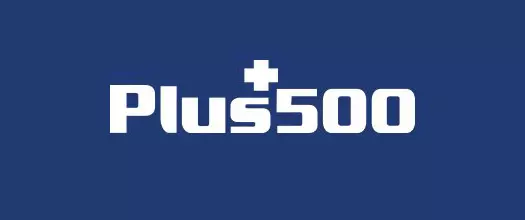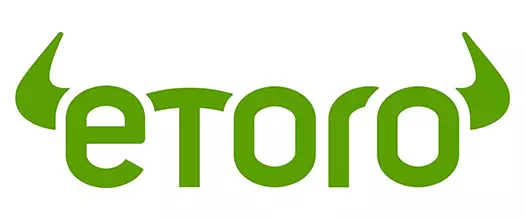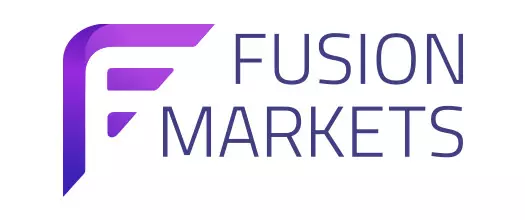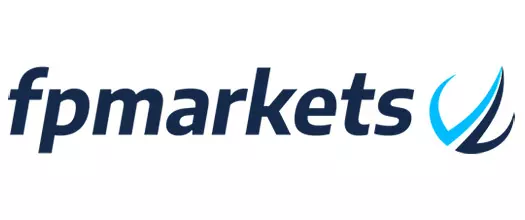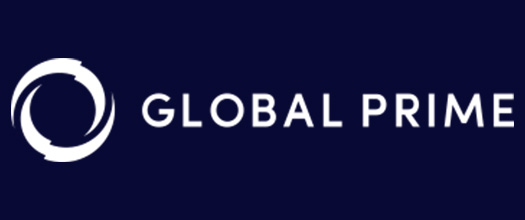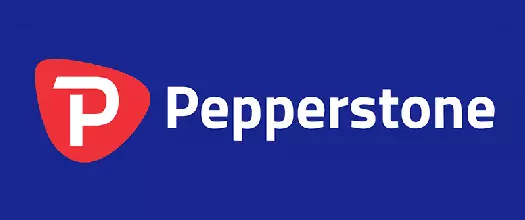- Jump to:
- Main features of the best Norway Forex brokers
- Forex Legislation
- Financial Regulators
- Payment Methods
- Trading Software
- Mobile Trading
- FAQ
Our team of expert traders has tested numerous regulated and trustworthy forex brokers that accept traders from Norway and has compiled a top list of the very best. Each broker operating in Norway received a quality score based on several factors, including its Trustpilot rating, regulation, fees and commissions, available trading platforms, customer service, and more.
 Plus500 USThis content applies only to Plus500 US and clients from the United States. Trading futures involves the risk of loss.
Plus500 USThis content applies only to Plus500 US and clients from the United States. Trading futures involves the risk of loss. eToro61% of retail investor accounts lose money
eToro61% of retail investor accounts lose money Fusion Markets74-89% of retail's CFD accounts lose money
Fusion Markets74-89% of retail's CFD accounts lose money FP Markets73.85% of retail investor accounts lose money
FP Markets73.85% of retail investor accounts lose money Global Prime74-89% of retail CFD accounts lose money
Global Prime74-89% of retail CFD accounts lose money Pepperstone75.5% of retail investor accounts lose money
Pepperstone75.5% of retail investor accounts lose money
Below, you can find a comprehensive comparison table of forex brokers serving traders in Norway. We rank them based on several factors including regulation, spreads and commissions, Trustpilot rating, trading instruments, trading platforms, and deposit and withdrawal methods.
Our team has thoroughly evaluated all brokers listed below using TradingPedia’s exclusive methodology.
Main features of the best Norway forex brokers
- Brand
- Trading platforms
- Minimum deposit
- Regulations
- Trading instruments
- Spreads
- Leverage for Forex CFDs
- Leverage for Crypto CFDs
- Leverage for Indices CFDs
- Deposit methods
- Withdrawal Methods
- Commission per Lot
- Contact details
Norway is a Scandinavian country in north-western Europe characterised by its fjord-dotted coastline, epic landscapes, and a mixed economy with well-developed private and state sectors.
A substantial portion of its economic growth originates from major catalysts such as the petroleum, fishing, shipping, tourism and hydro-power industries.
Norway is a relatively small country, but it boasts the largest sovereign wealth fund in the world, whose value had grown to a staggering US$1.09 trillion in October 2019. Norway considered becoming a member of the European Union twice – once in 1972 and again in 1994 – but its citizens voted against membership on both occasions.
Despite this, the country still makes a considerable contribution to the European economy and must abide by many EU laws. Its membership in the European Free Trade Association (EFTA) and the European Economic Area (EEA) provides Norway with full access to the single market, with little to no restrictions on trading within the European Union.
Given these conditions, one could assume this affluent nation would pour a great deal of money into online trading, but this simply is not the case. Norway’s forex trading market is not particularly impressive despite the thriving local economy. Nevertheless, foreign exchange trading is well regulated in Norway, with investors from the country having a decent choice of locally and EU-licensed brokerages.
Norway forex legislation
Traders from the Land of the Midnight Sun can legally invest in financial instruments such as currency pairs, contracts for difference (CFDs), stocks and indices. The local forex sector is overseen by Finanstilsynet, known in English as the Financial Supervisory Authority of Norway (FSA).
Brokers looking to receive licences from the Norwegian regulator must comply with certain conditions and restrictions. Since Norway is a member of the EEA, many of its regulatory guidelines mirror the framework outlined by the EU regulator, the European Securities and Markets Authority (ESMA).
It is recommended, although not absolutely necessary, for brokers to obtain a licence from the Norwegian regulator, Finanstilsynet. The watchdog has a website with a registry where local traders can find up-to-date information about all firms and individuals that fall under Finanstilsynet’s supervision. All authorised brokers undergo regular audits to ensure they work in full compliance with Finanstilsynet’s requirements.
However, companies established and licensed in other member states of the EEA and the EU are entitled to provide their services legally on Norwegian soil as long as they notify Finanstilsynet of their intention to do so. They can do so even without having a physical establishment in Norway. As is the case in many European countries, most brokers that operate in Norway are in fact licensed and registered in other jurisdictions, such as the United Kingdom and Cyprus.
Being a member of the EEA, Norway has also adopted MiFID (the Markets in Financial Instruments Directive). This piece of legislation came into effect in 2007 but has undergone several revisions over the years. Its purpose was to harmonise the regulatory frameworks of the EU financial markets and boost the volume of investments between member states.
For this reason, Norway’s forex regulations largely coincide with those enforced in other European countries. Brokers active on the Norwegian market must hold their customers’ money in segregated accounts that are separate from the ones in which the companies’ operational capital is stored. This ensures customers’ funds remain safe should something unfortunate happen to the firm, such as bankruptcy.
Similarly to many other European countries, Norway decided to prohibit altogether the marketing, sale and distribution of binary options as of July 2018. After extensively investigating six major foreign providers of binary options, the Norwegian authorities found that these entities resorted to extremely aggressive advertising methods that could be detrimental to retail investors while failing to provide adequate warnings about the risks inherent in this financial instrument.
Restrictions on the sale and advertising of high-risk CFDs came into force in August of the same year. Under the new rules, CFD providers must comply with a stop-loss policy that aims to limit investors’ losses. They should also post standardised disclaimers on their websites to warn retail customers about the risks of trading complex derivatives.
Leverage is capped in line with ESMA’s proposed maximum of 1:30 for major forex pairs. The limitations vary according to the volatility of the CFD’s underlying asset. Margins should range from 3.33% to 20%.
Norway financial regulators
The forex trading sector is supervised by the Financial Supervisory Authority of Norway (FSA). Formed in 1986, this government agency ensures all financial companies within the country adhere to the relevant laws and regulations.
It is headquartered in the Norwegian capital, Oslo, and reports directly to the Ministry of Finance.
Norway’s FSA was founded through a merger between two other entities, the Norwegian Insurance Council and the Norwegian Broker Control Agency. It was previously known as the Credit Supervisory Authority but was renamed Finanstilsynet in the winter of 2009. Apart from forex trading, the watchdog regulates local banks, stock exchanges, pension funds, insurance, financing and credit companies, among others.
The FSA has a very orderly and informative website, available in both Norwegian and English. It features a detailed registry with all trading companies that are authorised to serve customers from the Norwegian market legally.
Enter the name of the broker you are interested in to see its Finanstilsynet ID, the type of services it can offer and where it is licensed. Many of the companies listed in the registry are regulated in other European jurisdictions, such as Cyprus or the UK.
Norway forex payment methods
Practising with a demo account is always an option for novice forex traders from Norway, but you need to make a deposit if you want to start trading with real money. There are many different ways to deposit or withdraw from your account if you are based in Norway.
The most widespread options in this Nordic country are standard debit and credit cards issued by Visa and Mastercard, followed by online banking and digital wallets. Bank cheques are commonly available but are less frequently used by locals.
Norway has a mature e-commerce market, with an increasing number of residents using the services of third-party companies such as Trustly. This payment platform is available across 29 European countries, including Finland, Norway, Sweden, Denmark, Estonia, the Netherlands and Spain.
This method enables you to fund your trading account in several simple steps. First, you should select Trustly from the payment section of the broker’s website and choose the bank whose online banking services you are using. Then you log into your online banking, specify the amount you want to transfer to your trading balance, and confirm the payment.
If the simplicity of Trustly appeals to you, you have several other payment solutions that work on the same principle. One option that immediately comes to mind is Nordea, which was created after the merger of several major Scandinavian banks. Nordea enables Norwegian traders to carry out transactions regardless of their location as long as they have signed up for the online banking services of one of the associated banks.
Some brokers on the Norwegian market accept payments via Klarna. E-wallets such as PayPal, Skrill, and Neteller are also widely available to customers from this jurisdiction. Many prefer to use them because of their efficiency, convenience and speed.
Popular trading software in Norway
All decent brokers on the Norwegian market use robust platforms that facilitate speedy and hassle-free trading. A good forex platform stands out with an easy-to-use interface, a broad range of tools for market analysis, lightning-fast execution speeds and up-to-date quotes. It also needs to have a well-organised chart station that allows for customisation.
The good news is that many Norwegian brokers choose to implement MetaQuotes’ MetaTrader 4 and MetaTrader 5 platforms, both of which meet all of the above-listed criteria. Both platforms are available for free installation and work on all popular operating systems, including Microsoft Windows, Linux and macOS. The platforms are also available for browser-based trading via dedicated WebTrader versions.
They offer all the leading technologies for trading and market analysis alongside a host of additional services. Algorithmic trading is made possible through the availability of Expert Advisors. You can trade the financial markets on the fly since both MetaQuotes platforms are fully optimised for iPhones, iPads and Android-based mobile devices. Norwegian is listed among the supported languages.
Some Norway-friendly brokerages opt for lesser-known platforms such as cTrader, Sirix, ZuluTrade, and NinjaTrader while others prefer to utilise proprietary trading software. Most brokers that operate in Norway offer free trials of their trading platforms to allow new customers to become acquainted with all the features.
Mobile trading in Norway
The foreign exchange markets are not easy to conquer, even when one possesses all the necessary knowledge and experience. To succeed in the long run, forex traders must keep abreast of all the latest developments, trends, and news in the financial world. In recent years, this has become increasingly easy thanks to the rapid development of mobile technologies.
Smartphones and tablets are gaining traction in the forex community, with more and more traders preferring them over desktop computers and laptops. This tendency can also be observed in the Land of the Midnight Sun, where smartphone penetration reached almost 87% in 2018, with over 4.6 million users. Forecasts predict the number of active smartphone users in Norway will reach 5.19 million per month by 2024.
In 2017, the country ranked third in the world in terms of 4G availability and speed, with an average connection of 41.20 Mbps. It is hardly surprising that mobile traders from Norway enjoy a seamless trading experience while away from their desktop computers.
Norway-friendly brokers cater to popular demand by offering customers from the country intuitive mobile apps, optimised for Android and iOS devices. Apart from supporting quick order execution, the apps are equipped with all the necessary tools and resources required for detailed analysis of the financial markets. The best Norway-friendly brokers also feature various educational tools to the benefit of beginner mobile traders.
